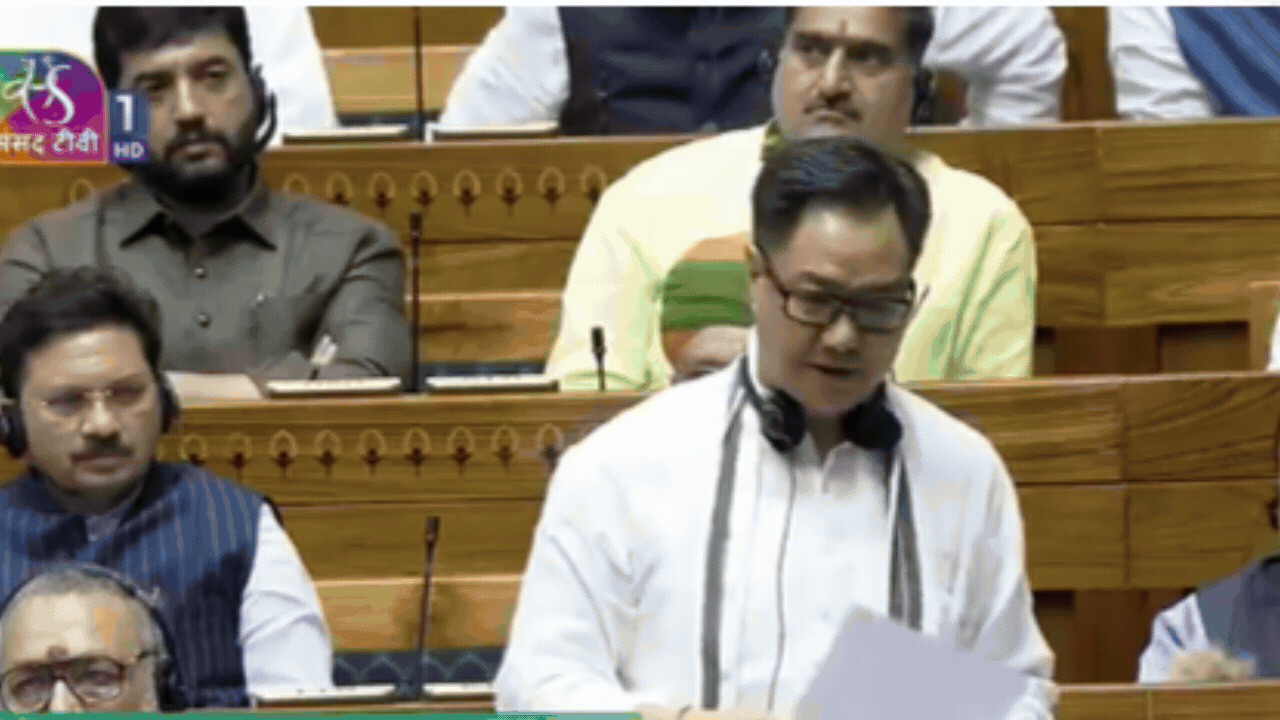[ad_1]
The Invoice was tabled in Lok Sabha with the intention amend the Waqf Act, 1995, to handle the 2013 modification.
In 2013, the definition of “everlasting dedication” was revised, altering from “everlasting dedication by an individual professing Islam” to “everlasting dedication by any individual.” This modification is believed to have considerably broadened the scope, permitting anybody to dedicate property to Waqf boards.
The All India Muslim Private Legislation Board has criticized the invoice as an intrusion into private legal guidelines.
‘Why Non-Muslims?’: Fiery Opposition Forces Modi Govt To Make This Uncommon Transfer On Waqf Invoice
What are key points addressed in with Waqf Act, 1995
BJP, in a put up on X highlighted the important thing points with the Waqf Act.
“Permitting land to be devoted as waqf primarily based on utilization poses dangers of misuse and unauthorized claims on public land,” it stated.
As soon as a property is designated as Waqf, it stays so indefinitely, resulting in quite a few disputes and claims.
Different points highlighted by the saffron occasion embody “enhanced powers of the Waqf Board might result in potential overreach and disputes.”
What does the Waqf (Modification) Invoice, 2024, intention at
The Waqf (Modification) Invoice, 2024, goals to modernize the administration of Waqf properties by enhancing ladies’s rights, making certain equitable illustration on the Central Waqf Council and Waqf boards, and lowering litigation.
The invoice proposes renaming the Act to “Unified Waqf Administration, Empowerment, Effectivity, and Improvement Act, 1995.”
What does the Invoice have for girls
It goals to make sure illustration for Muslim ladies and non-Muslims on Waqf boards and to incorporate “Aghakhani waqf” and “Bohra waqf” alongside the present Sunni and Shia Waqf boards.
It features a clause associated to the “welfare, upkeep of widow, divorced lady and orphan in such method, as could also be prescribed by the Central Authorities.”
It addresses the controversial provision regarding “waqf-alal-aulad,” clarifying that it’ll not infringe upon the inheritance rights of the Waqif’s heirs, together with feminine heirs.
Why Invoice proposes to repeal Part 40 of Waqf Act, 1995
The Invoice proposes to repeal Part 40 of the Waqf Act, 1995 because it offers Waqf boards energy to determine if a property falls underneath Waqf property.
It specifies that solely lawful house owners with the capability to switch or dedicate property can create a Waqf.
Waqf pertains to properties put aside solely for non secular or charitable functions underneath Islamic regulation. As soon as a property is designated as Waqf, possession is transferred from the person making the Waqf (waqif) to Allah, rendering it irrevocable.
The irrevocability has led to numerous disputes together with Bengaluru Eidgah floor, claimed as Waqf property because the 1850s, and the Surat Municipal Company constructing, which is claimed attributable to its historic use as a ‘sarai’ throughout the Mughal period.
[ad_2]
This Submit could comprise copywrite



